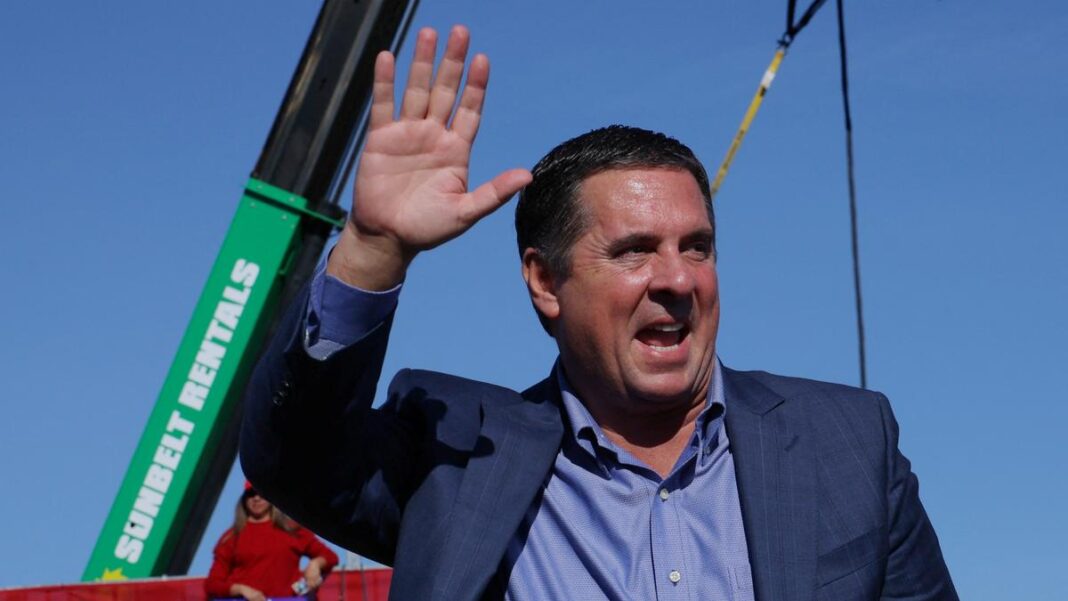A former U.S. attorney general recently expressed strong concerns about a controversial appointment made by the president. The appointment in question is the selection of the CEO of Truth Social, a social media platform. This appointment is for a critical position within the government: chairman of the President’s Intelligence Advisory Board.
A Deeply Disturbing Appointment: Truth Social CEO’s Controversial Role
The chairman holds significant responsibility. The role involves overseeing intelligence gathered by various government agencies. The chairman also advises the president on national security matters. This position plays a key role in the nation’s security.
The former U.S. attorney general described the choice as “deeply disturbing.” The attorney had worked in a high-ranking position during the Obama administration. He emphasized that the position holds immense importance. The chairman is expected to act as the president’s eyes and ears. This responsibility relates specifically to national security matters. The appointee’s background raised alarm bells because of what some consider a severe conflict of interest.
The president appoints the chairman of the President’s Intelligence Advisory Board to serve as an impartial advisor. The chairman ensures that intelligence reports are used responsibly for the nation’s security. However, the president selected someone with direct connections to a social media platform. This platform has political affiliations and foreign funding. This raises concerns about the potential for bias and manipulation. This could lead to the compromise of sensitive information, which is alarming given the nature of the role.
The Role’s Crucial Importance: Truth Social CEO’s Potential Influence
The position of chairman of the President’s Intelligence Advisory Board is designed to serve a critical function in the U.S. government. This board’s primary role is to provide independent advice on the effectiveness of the nation’s intelligence agencies. These agencies collect and analyze information about potential threats, such as terrorism or espionage, and report this to the president. The chairman is expected to be someone who can oversee this process objectively, ensuring that all intelligence is handled carefully and transparently.
The chairman’s responsibilities include reviewing intelligence reports, assessing the work of agencies like the CIA, FBI, and NSA, and providing advice on policy decisions related to national security. Given the sensitivity of this information, the position requires someone who is trusted not only by the president but also by the American public. The chairman must be free from any conflicts of interest that could influence decisions related to national security.
The concern raised about the recent appointment is the potential for the chairman to use the position for personal or political gain. Critics argue that the appointee’s business and political ties pose a significant risk, as outside interests could influence his actions rather than the national security of the country. This could severely impact the integrity of intelligence gathering and the decision-making process at the highest levels of government.
Conflict of Interest and Foreign Funding
One of the most alarming aspects of the situation is the foreign funding connected to the appointee’s company, Truth Social. The platform, which was created as an alternative to more mainstream social media outlets, has reportedly received financial backing from foreign parties. Critics have pointed out that this raises questions about how much influence these foreign entities could have over the platform and, by extension, the appointee himself.
The concern is that the appointee might have access to sensitive national security information. As chairman of the intelligence advisory board, he would oversee this information. This access could lead to a situation where the appointee uses the information for foreign interests. Whether intentional or unintentional, this could be harmful. The potential for a conflict of interest is significant. As chairman, the appointee would influence national security decisions. These decisions could affect international relations and the country’s security.
Furthermore, there is the issue of what information the appointee might have access to and how it could be used. As head of Truth Social, the appointee could potentially share confidential details, either knowingly or unknowingly, through the platform. The idea that someone in such an influential position could use intelligence information to further their business interests or political agenda is a deeply troubling thought.
The situation raises concerns about the transparency and accountability of government appointments. If officials do not address conflicts of interest, they could erode trust in government institutions and undermine national security. It is crucial that the government thoroughly vets such high-stakes appointments to ensure the individual can perform their duties without external influence.

